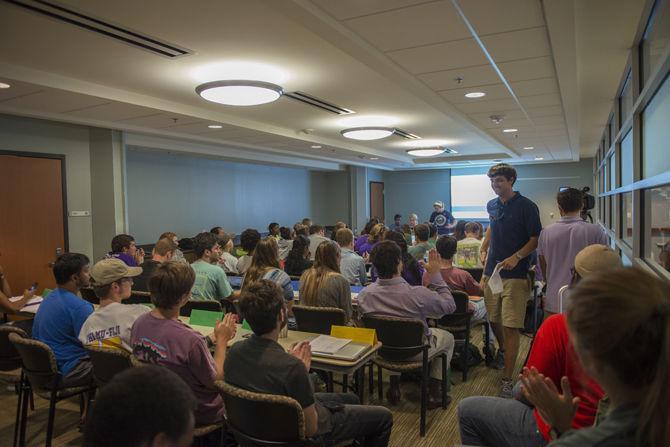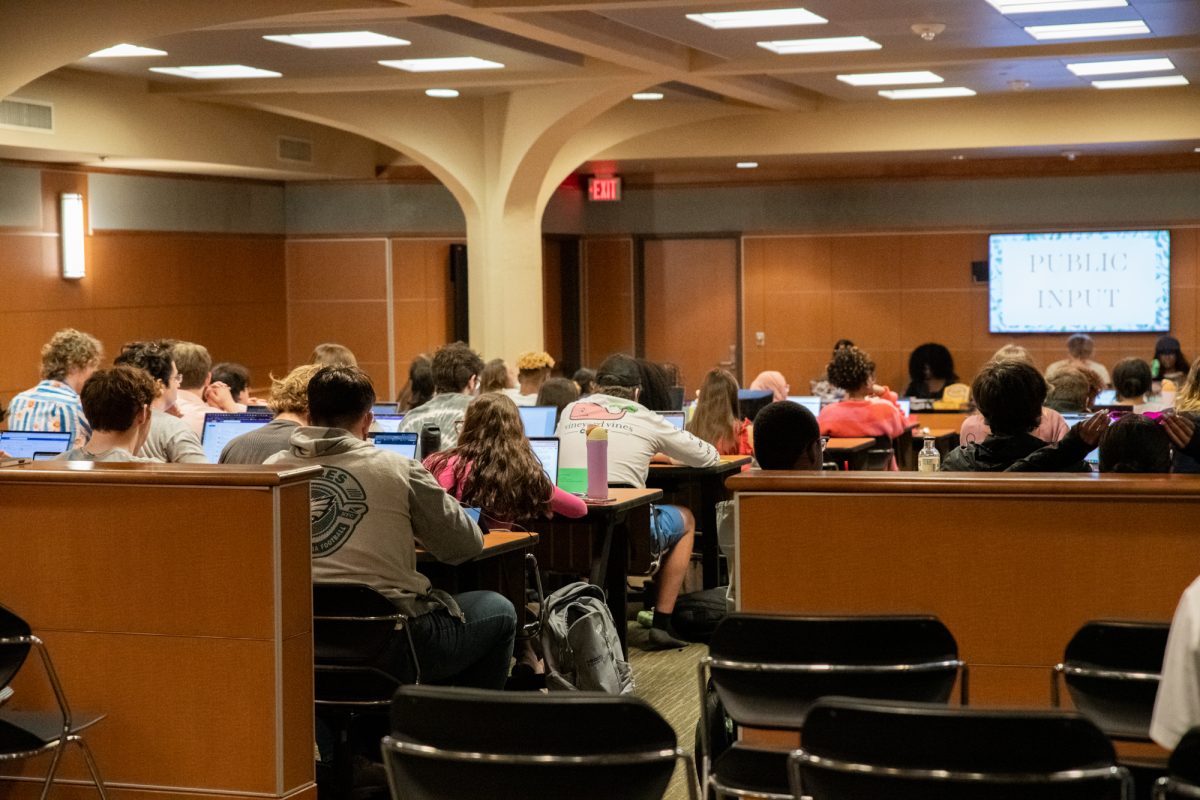Students now have the opportunity to access syllabi for an assortment of classes through a database created through a Student Government initiative.
Born out of a resolution passed by SG Student Senate in February 2014, the syllabi database was originally spearheaded by former SG senators Andrew Mullet and Gabrielle Triche. With additional help from the Office of the University Registrar and the Office of Academic Affairs, the database was finally unveiled in March 2016.
“I think the original idea behind it was strictly for transparency,” SG president Zack Faircloth said. “Now, more than ever, I think [the syllabi database] has got this ‘How much are you going to pay for a class?’ component to it.”
The database, which launched on Jan. 18, should reveal a few things to students and faculty alike, Faircloth said.
The database will allow students to know which courses will require them to purchase more expensive textbooks and materials. Among faculty, the database will reveal section inequality to Academic Affairs, which could even out the sections within a course.
“In the transparency there is going to be a lot of great ripples,” Faircloth said, referencing the effect of the syllabi database.
Currently, there is no shortcut to access the database on MyLSU. Googling “LSU Syllabus Database” will bring up a link to the site, as well as typing in “lsu.edu/syllabus,” which is a direct link to the database. In addition, there is hope that the database will be accessible on the new LSU app, Faircloth said.
Once on the database, there are many different criteria to help filter through and locate an exact syllabus.
“What I want to urge [students] to do right now is just click the search button,” Faircloth said. “What happens is it shows [students] every single syllabus that’s available in the database.”
Faircloth acknowledged that the list of syllabi available is limited at this point, with just under 90 entries accessible, but the goal is to continue populating that list.
The database itself is an opt-in program for professors, but SG’s College Councils are working to do outreach with individual colleges, starting with the deans and Academic Affairs groups to create a trickle-down effect throughout the rest of the college, Faircloth said.
“Anything that’s optional for faculty is always a toss-up,” Faircloth said. “I was very happy to see the turn out; not just in terms of how many syllabi, but how many professors are actively participating and the breadth of different departments that are participating … That means the message is out there. Now, it’s just a matter of spreading it and rewarding the people who are doing the right thing by uploading.”
SG launches syllabi database
By CJ Carver
February 2, 2017
Senate memebers during the weekly Student Government Senate meeting on Wednesday Sept. 14, 2016, in the LSU Student Union.
More to Discover









